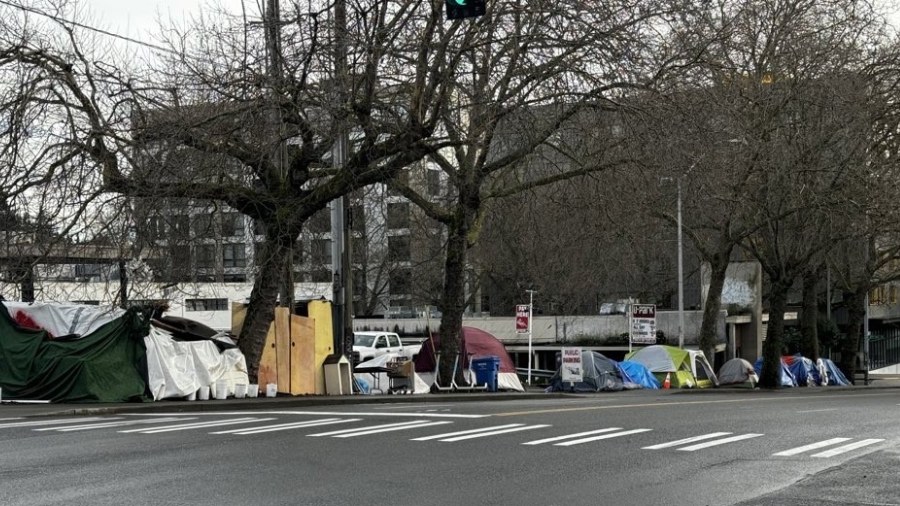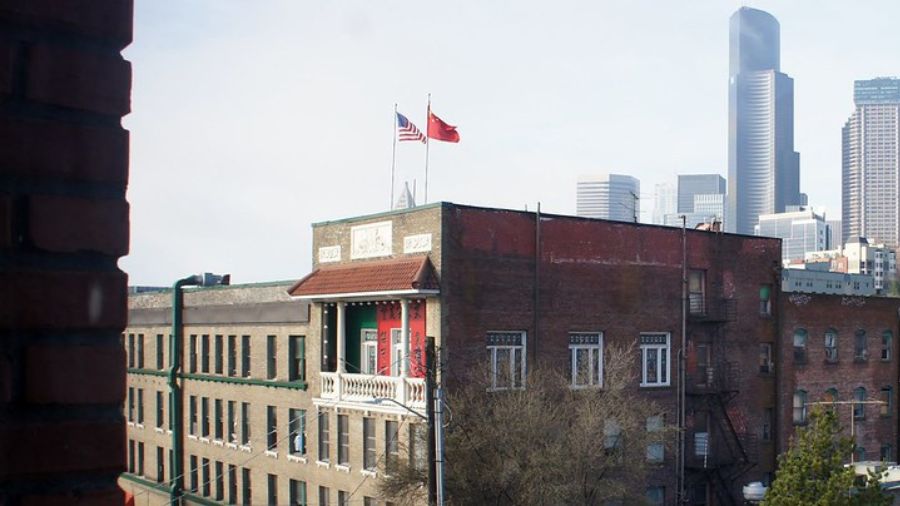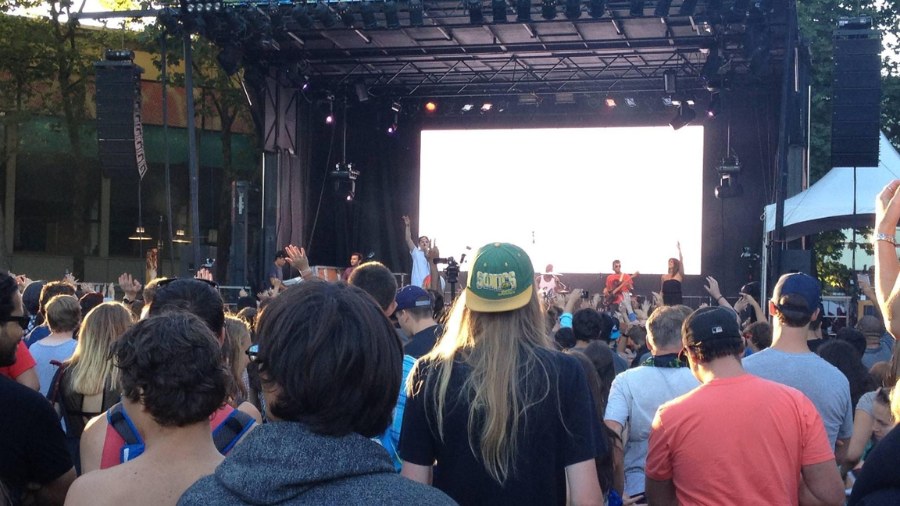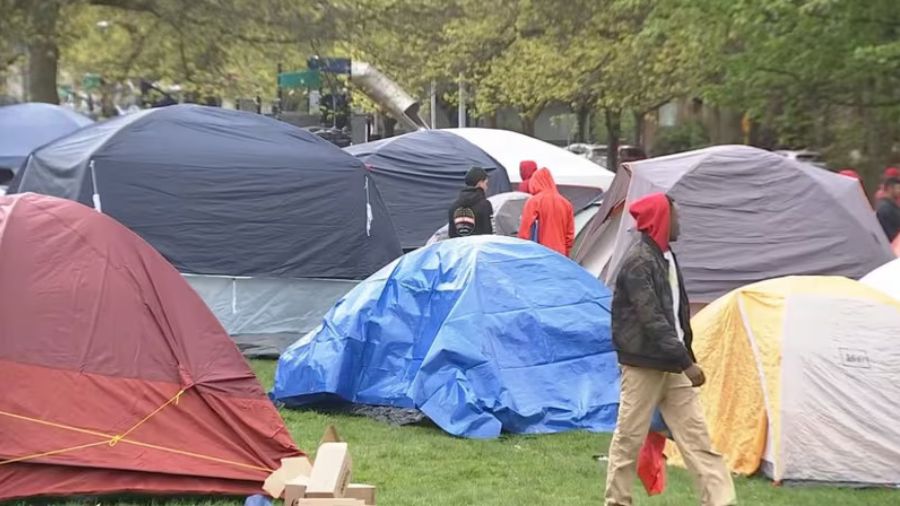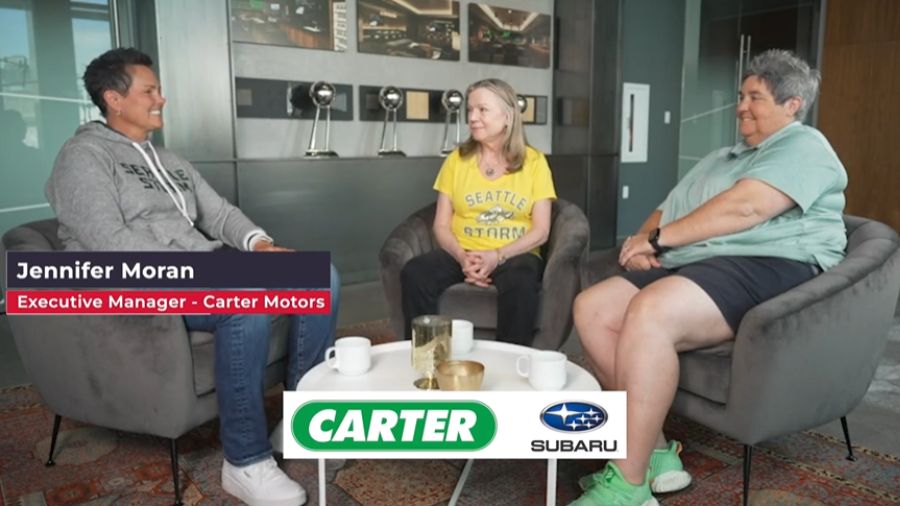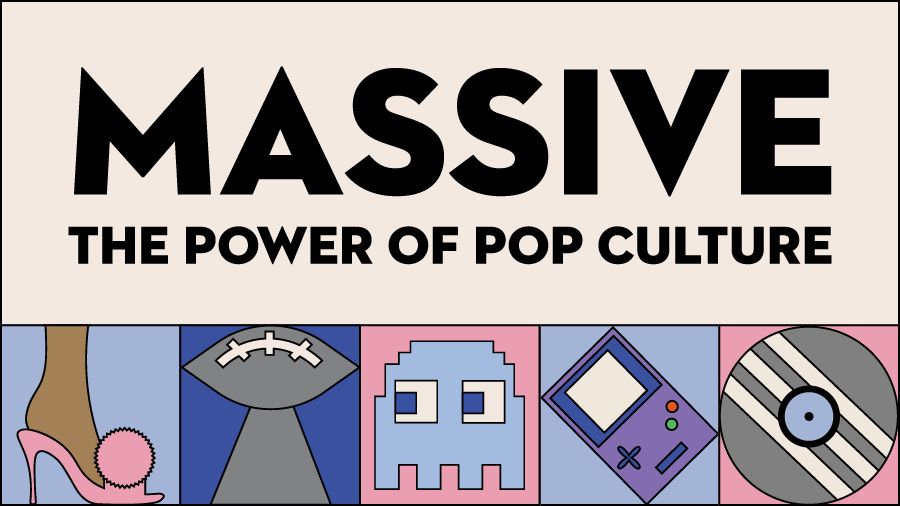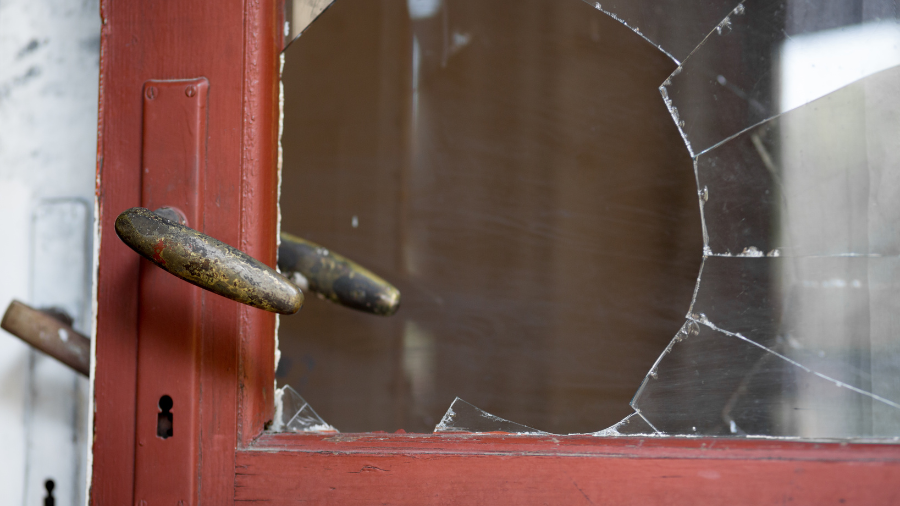Rantz: Festering Seattle homeless encampment to be cleared
Mar 3, 2024, 5:55 PM
A large, festering Seattle homeless encampment bordering the Seattle Center and Seattle Opera will finally face a sweep this week. But the homeless addicts living there explain they haven’t been offered meaningful assistance by the city.
Tents have lined Mercer Street at Warren Avenue for at least three months. Now, it houses at least 17 men and women, mostly drug addicts who use fentanyl. They say they have asked for help, with a handful actually willing to accept it.
But Andrea Suarez, the executive director of private homeless outreach group We Heart Seattle, tells the Jason Rantz Show on KTTH she spoke with everyone living at the crowded homeless encampment. They say they’re not being given the help they need.
“So, we understand that REACH has been out here or the Unified Care Team (UCT), to a degree. But the feedback we’re getting is that nobody has been offering anybody actual pathways out, like detox,” Suarez exclusively told the Jason Rantz Show on KTTH. “We have several people willing to hop in our car, go to (detox facilities). We are in contact with people’s families. their children, their grandparents.”
More from Jason Rantz: Seattle restaurant owner ‘lost all faith’ in city after 23rd break-in
When will the Seattle homeless encampment finally get cleared?
A spokesperson for UCT confirmed to the Jason Rantz Show the encampment will be removed this week, but did not provide a specific day, as is their policy.
“Outreach providers are actively engaging at the site to connect individuals to shelter and service resources, and all individuals residing onsite on the day removal notice is posted will receive an offer for alternative shelter,” the spokesperson said in a statement. “In the lead-up to site resolution, UCT has been providing trash mitigation multiple times per week and addressing accessibility concerns such as obstructed sidewalks and building entrances, in addition to removing public health and safety hazards like propane tanks. A full cleaning of this site will be completed on the day of removal and UCT will closely monitor the area in an effort to prevent repopulation.”
The encampment is littered with purple trash bags provided by the city of Seattle as part of its outreach efforts. The Purple Bag program, championed by Socialist Seattle City Council member and anti-sweep activist Tammy Morales, has primarily failed, says Suarez. The bags are merely left by tents for the homeless to fill with trash and drop off for pickup. But they don’t get used and become more garbage needing to be picked up.
Meanwhile, anti-sweep activist groups offer their “help” by dropping off plants for the homeless to care for. The plants end up dying and becoming trash to fill the purple bags with.
Private Seattle homeless outreach group We Heart Seattle asked to help
Some small business owners impacted by the encampment complain about the trash and human waste at the homeless encampment. When it rains, gas, oil, feces and urine runoff hits their property.
Suarez says the homeless men and women at the Mercer encampment have not been offered any real housing or detox options. It’s why a local business group contacted We Heart Seattle for help. Anecdotally, they’re more effective in connecting the homeless with resources.
“And we were contacted, because we believe and they believe, (the homeless will) just be moved around the the corner. Looks like we’re just herding people around the block. They know it, the city knows it, because not everybody is willing to accept some form of housing or treatment, and why a different approach of outreach is critical,” Suarez said. “We should have 100 people right now on the block, providing kind of like a family friend, life coach, advocate-sponsored type of one-on-one advocacy for each of these 17 people here and walk them out of this mess. It’s a very intensive outreach model, daily boots on the ground and daily hyperlocal outreach every day all day long to help these folks. And we’re not seeing it.”
Jason Rantz content: UW study dismisses drug concerns to protect transit, harm reduction advocates
Getting Seattle homeless to treatment
This is where Suarez and her volunteers fill the gaps, providing the intensive outreach the city won’t or can’t do.
For example, We Heart Seattle connected with a homeless man named Theo. Suarez was able to track down Theo’s grandparents, who agreed to pay for a three-month detox program called Battlefield Addiction.
“It’s $5,000 a month. But that’s part of what we use our donations for,” Suarez explained. “And also we engage with family to help pay for it, as well. This is not a model of outreach that is adopted by our taxpayer dollars. And we’re trying to get that switched.”
Not everyone is willing to accept services, a consequence of “harm reduction” and “housing first” models where city staff or city-supported non-profits offer few consequences to the homeless. Instead, the homeless are given clean needles or fentanyl pipes and are allowed to camp out for months wherever they’d like as the city waits for space in homeless hotels or permanent supported housing.
Harm reduction and housing first do not work
Seattle’s adopted models do not work. It’s why the homeless crisis has gotten worse, not better, over the last decade.
Harm reduction is a strategy that is supposed to mitigate the effects of illicit substance abuse to keep an addict alive long enough to get treatment. But harm reduction advocates eschew treatment, arguing that it’s stigmatizing to tell an addict there is anything wrong with their behaviors. Instead, the homeless “advocates” working for or with the city had out drug paraphilia that enables drug addiction. These addicts inevitably die from an overdose because supposedly reducing harm doesn’t mean that harm is eliminated.
Connected to the harm reduction model is a housing first strategy. It aims to put people in “housing” (hotels, tiny home villages, supportive housing, etc.) before addressing why the underlying reasons behind homelessness. This is a money pit that allows homeless addicts or people with severe mental illness to be given permanent supportive housing without any conditions, even after they get the housing. The drug addict may continue to use drugs, and the mentally ill are under no obligation to get treatment.
While data doesn’t support either approach, it’s favored by the Radical Left, a group of activists that terrify Seattle politicians.
We should stigmatize drug use
Society should stigmatize illicit substance abuse. It’s not something to be normalized or accepted; it is a death sentence for the addict, whether or not that person is homeless. That they’re addicts while living outside makes it that much harder to get them the treatment they deserve.
The Seattle approach with a harm reduction strategy makes pushing detox on addicts nearly impossible. It’s a reality that the entire state of Oregon faced after effectively legalizing drugs with Measure 110. After years of life under Measure 110, and a historic rise in fatal overdoses where the homeless were disproportionately impacted, the state legislature finally reversed course. Both the House and Senate essentially recriminalized drugs. Their legislation awaits the governor’s signature.
Endless drug paraphernalia and permanent housing mean the homeless have no incentive to stop using. It’s why Seattle continues to lead the way in homelessness failures.
“It is hard for people to willingly accept (detox) without a choice or a mandate and why often law enforcement and arrest is their only path out, which we urge,” Suarez said. “But outreach, family, friends, colleagues and everyday citizens can also become more involved and encourage, coerce, stigmatize because it will save their life period. End of story.”
Listen to the Jason Rantz Show on weekday afternoons from 3-6 p.m. on KTTH 770 AM (HD Radio 97.3 FM HD-Channel 3). Subscribe to the podcast here. Follow Jason on X, formerly known as Twitter, Instagram, and Facebook.

